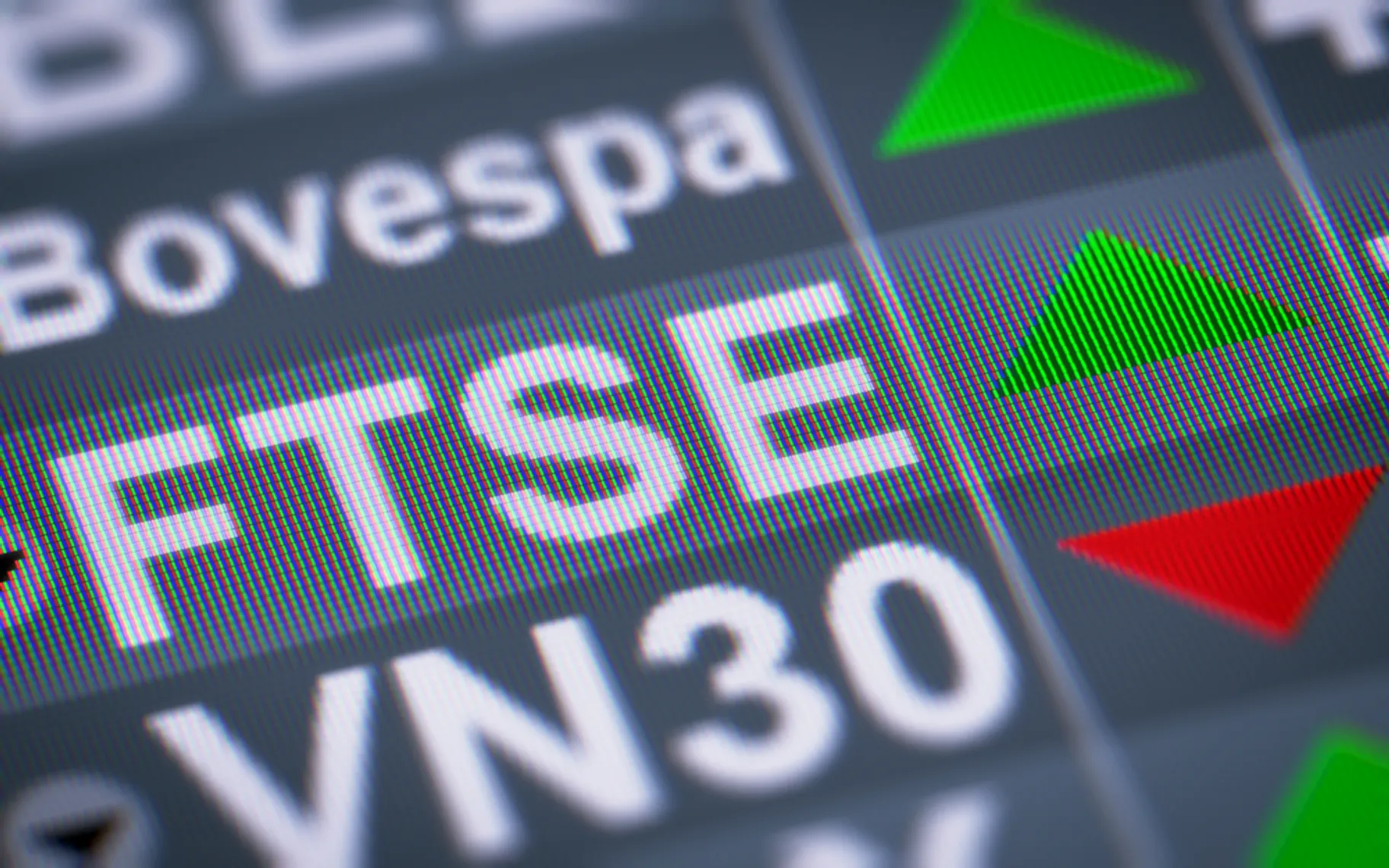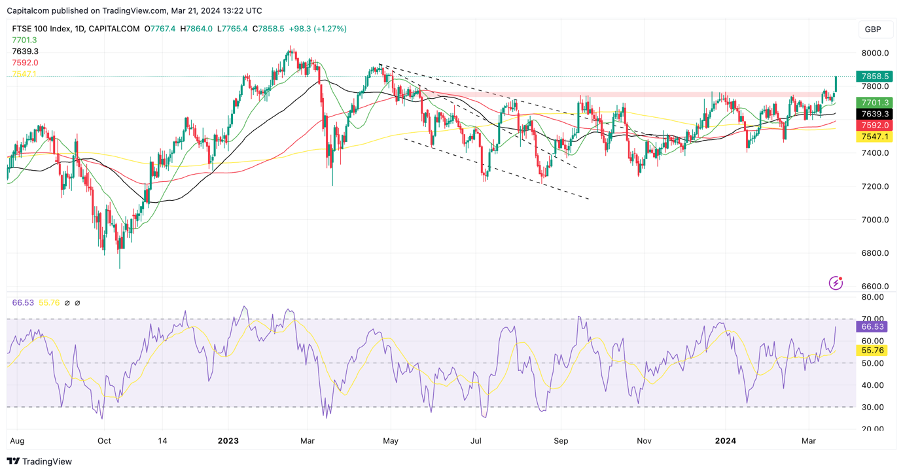BoE leaves rates unchanged, dovish vote split weighs on GBP and pushes FTSE 100 to new high
The Bank of England left rates unchanged in March but gave a dovish view in the statement and vote split
The Bank of England (BoE) kept rates unchanged at 5.25% at its meeting in March as widely expected. Governor Andrew Bailey said the British economy is moving in the right direction for the bank to start cutting rates, which gave a dovish tone to the meeting. The vote split also helped, as the two hawkish dissenters from February (Haskel and Mann) moved into neutral territory, voting to keep rates unchanged rather than hike 25bps. Dovish dissenter Dhingra kept her vote unchanged from February, opting for a 25bps cut.
The 8-1 vote split is more dovish than the 2-6-1 from the previous meeting, which suggests members of the Monetary Policy Committee (MPC) are becoming more comfortable with the idea of less restrictive policy in the near future. The dovish inclination weighed on the pound, with GBP/USD undoing some of the gains seen on Wednesday after the Federal Reserve also delivered what was perceived as a dovish hold.
It is still unlikely that the BoE will cut rates at its next meeting in May. Despite restrictive policy exerting pressure on the economy, easing the labour market and suppressing inflationary pressures, consumer prices remain too high, even as the economy entered a technical recession in 2023. Markets are currently pricing in an 86% chance of no change in May, with the first cut fully priced in for August. The central bank expects the consumer price index to return to its 2% target in the second quarter, as the household energy price cap is once again lowered in April.
GBP/USD is struggling to regain bullish momentum as the carry trade plays in favour of the dollar with a dovish BoE. The shift in vote split confirmed the end of the hiking cycle and the acceptance of rate cuts later this year, weighing on the pound and UK yields, whilst pushing the FTSE 100 to a nine-month high above 7,850.
FTSE 100 daily chart
 Past performance is not a reliable indicator of future results.
Past performance is not a reliable indicator of future results.